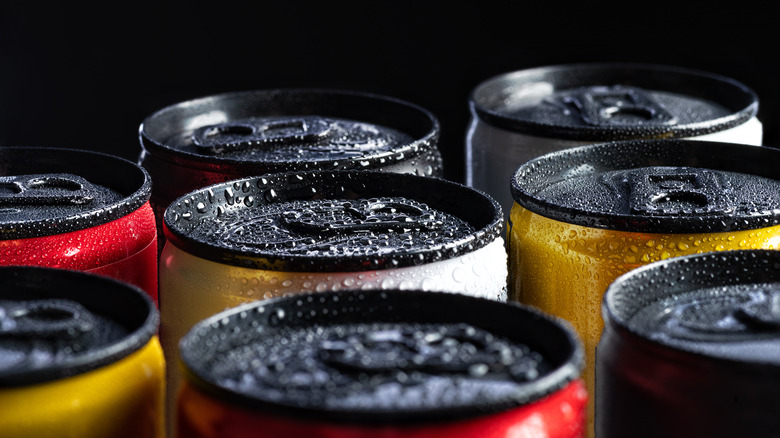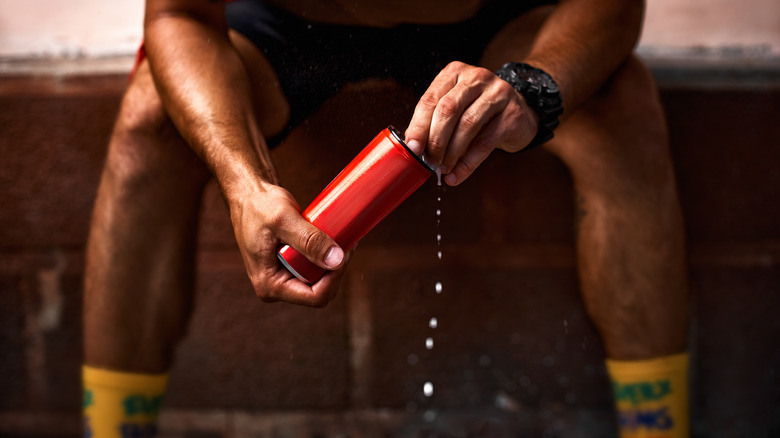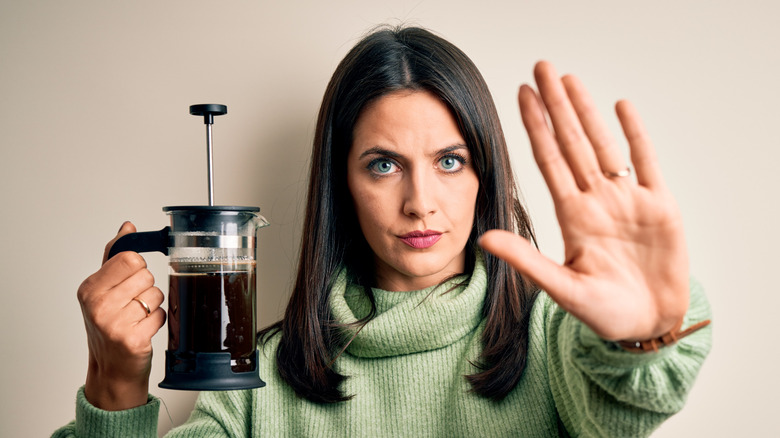This Energy Drink Contains The Highest Amount Of Caffeine Per Serving
Energy drinks are marketed to promote mental clarity, stimulate alertness, increase physical performance, and boost energy levels. According to the U.S. National Center For Complementary and Integrative Health, energy drinks are the most popular supplement consumed by teens and young adults, aside from multi-vitamins. In 2020, the revenue in the U.S. from energy drink sales remained at 134 billion dollars. Statistica Consumer Market Outlook estimates an increase of this number to 225 billion dollars by 2026.
Energy drinks continue to gain popularity, despite their bad reputation. Lawsuits related to energy drinks have flourished over the years, with claims that the drinks caused heart problems and even death (via About Lawsuits).
When selecting an energy drink, Global Health & Pharma recommends avoiding artificial color, chemicals, added sugars, taurine, ginseng, guarana, L-carnitine, vitamin B6, and B3. The site also stresses the importance of consuming energy drinks with no more than 300 milligrams of caffeine. This is especially important since caffeine can be addicting, causing you to crave even more.
Redline Xtreme contains the most caffeine
According to Caffeine Informer, the energy drink with the highest amount of caffeine per serving is Redline Xtreme energy drink. One eight-ounce serving of the beverage contains a whopping 316 milligrams of caffeine. To put that into perspective, most eight-ounce cups of black coffee contain between 80-100 milligrams of caffeine (via Medical News Today), and a 12-ounce serving of Coca-Cola contains 34 milligrams of caffeine.
Energy drinks also contain other stimulants such as taurine, guarana, ginseng, L-carnitine, ginkgo, and mega doses of sugar (via The U.S. National Library of Medicine). Healthline states caffeine isn't only found in energy drinks and coffee. Caffeine is also found in teas, cocoa beans, chocolate, chocolate-flavored foods, and guarana.
Excess caffeine consumption causes headaches, sleeplessness, irritability, and restlessness. Share Care says that keeping a caffeine diary is the easiest way to monitor your caffeine intake. Document the caffeinated foods and drinks you consume throughout the day.
How much caffeine is safe to consume?
The U.S. Food & Drug Administration says that healthy adults may safely consume up to 400 milligrams of caffeine daily, equivalent to four to five cups of coffee. The FDA also states that there are contributing factors to this number, like how fast a person's body metabolizes caffeine. Additional aspects include whether you're pregnant, breastfeeding, or have other health concerns.
According to the American Academy of Child & Adolescent Psychiatry, caffeine consumption is not recommended for children under 12. Little is known about how caffeine affects a child's developing brain, so the American Academy of Pediatrics recommends children avoid caffeine consumption. Undark claims that these recommendations are based on concerns about the side effects of consuming energy drinks. These side effects, although rare, include seizures, rapid heart rate, stroke, and even death.
Redline Xtreme energy drink makers are being sued for failing to caution consumers of potentially dangerous side effects and risks associated with the energy drink (via Schmidt & Clark). Practice caution when consuming caffeine and aim to remain within the recommended daily dosage.


